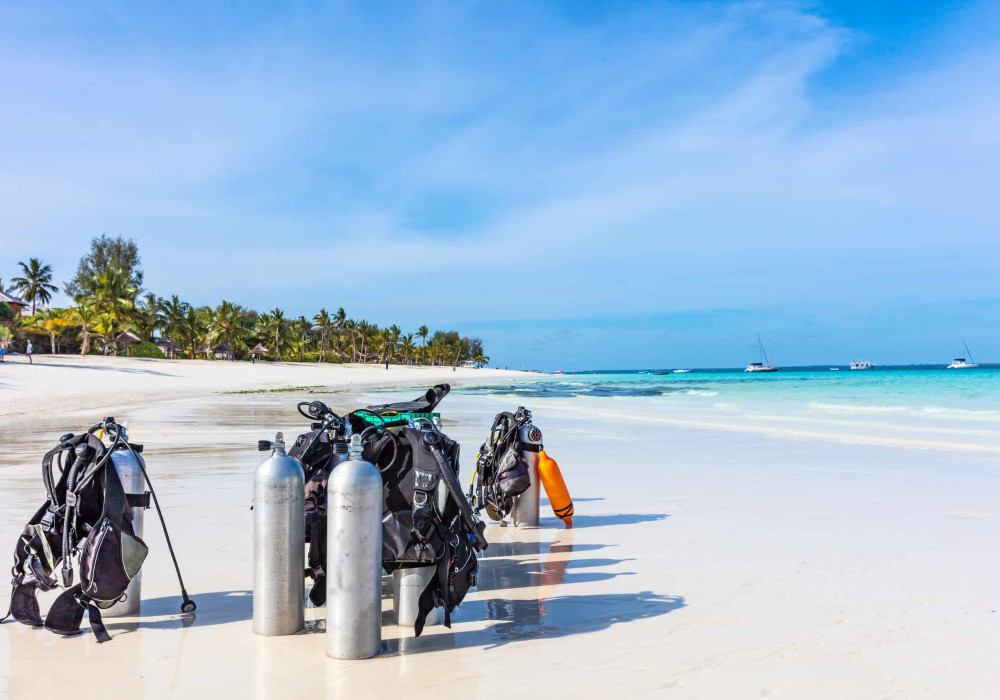

Pamunda Island Marine, Beaches and Activities
Pamunda Island in Tanzania is a small island in the Zanzibar archipelago, situated southeast of Nguruwe Island, and west of Miwi Island, all of which are small islands located south of Zanzibar aka Unguja island in the Indian Ocean.
This small island off the beaten track is a haven for stunning sandy beaches, turquoise waters and small coves. With few visitors to the island, the area has remained largely unspoiled and perfect for beach walks and water based activities.
The best time to visit Pamunda Island is during the cool-dry months, from July to October.
Why visit Pamunda Island?
Visitors looking for a more tranquil and peaceful day excursion will be in their element on this remote island. Situated south of Zanzibar on the Fumba Peninsula, overlooking Menai Bay, Pamunda is the perfect place for exploring the underwater coral.
The top attractions visitors can expect on Pamunda Island include:
Marine life
Other species on the island include fish that are brimming in abundance around Pamunda, including bush crabs, red-eyed doves, mangrove kingfishers, turtles, and many different birds.
Numerous tropical fish can be found, attracting scuba divers from the world over, as well as other fish species, including the Black Marlin, Blue Marlin, Striped Marlin, Broadbill Swordfish, Sailfish, and Spearfish.
The coral reefs and immaculate ivory beaches make for the most stunning of locations, attracting marine life from all around the area. There are many great beaches in Zanzibar as well as on the nearby islands of Pemba, Chumbe Island, and Unguja.
Scuba diving tanks and equipment ready for some deep sea action in the incredibly turquoise waters of Pamunda Island
Other activities at Pamunda Island
Here are some other activities that visitors can consider during their visit:
Diving is the perfect destination for divers and snorkelers to experience the breath-taking coral reef marine life. The crystal-clear water is perfect for scenic photography or staying onshore and enjoying the captivating beauty of this island.
Boat trips: Boats can be hired from locals to explore the beautiful coves and waters of the bay and surrounding areas, a popular activity with Zanzibar honeymooners.
Beach walks: Visitors can stretch their legs on the gleaming fine sand of the island’s beaches, laden with multi-coloured sea shells of all shapes and sizes.
Game drive safaris: Trips to Pamunda Island are often combined with safaris to the Serengeti and Ngorongoro Craters.
How do I get to Pamunda Island?
By Boat
Visitors can travel to Pamunda Island on a day trip on a locally operated boat. Travelers can fly to the main Zanzibar island via the main airport (ZNZ) if they are wondering how to get to Zanzibar.
ZNZ airport is located 3.1 miles south of Stone Town, the main city on the island, and a Zanzibar visa and certain vaccinations may be required to enter the country.
Visitors should respect the rules of the island, including the protection of the coral reef, wildlife, and landscape.
Useful information
Geography: Located on the east African coast of Tanzania, north of Dar es Salaam on the African Mainland, and south of Zanzibar, guests often combine trips on Pamunda Island to Stone Town, a UNESCO world heritage site on Zanzibar island.
Weather: Pamunda Island has high temperatures all year round, ranging between 28°C (82°F) and 32°C (89°F).
Best time to visit: The best time to visit Pamunda Island is during the cool-dry months, from July to October.
From January to February, it is also an excellent time to visit Pamunda. It is around the time of the peak winters in America and Europe.
Understanding the best time to visit Zanzibar is useful, as this can impact flight prices and availability.
Health: Travel through malaria areas may be required in order to reach Pamunda Island. Visitors are advised to seek medical advice from their doctor and consider antimalarial medication.
Money: Carrying a small amount of Zanzibar currency, the Tanzania Shilling (TZS) is recommended as a backup when paying for items where credit card facilities are unavailable.